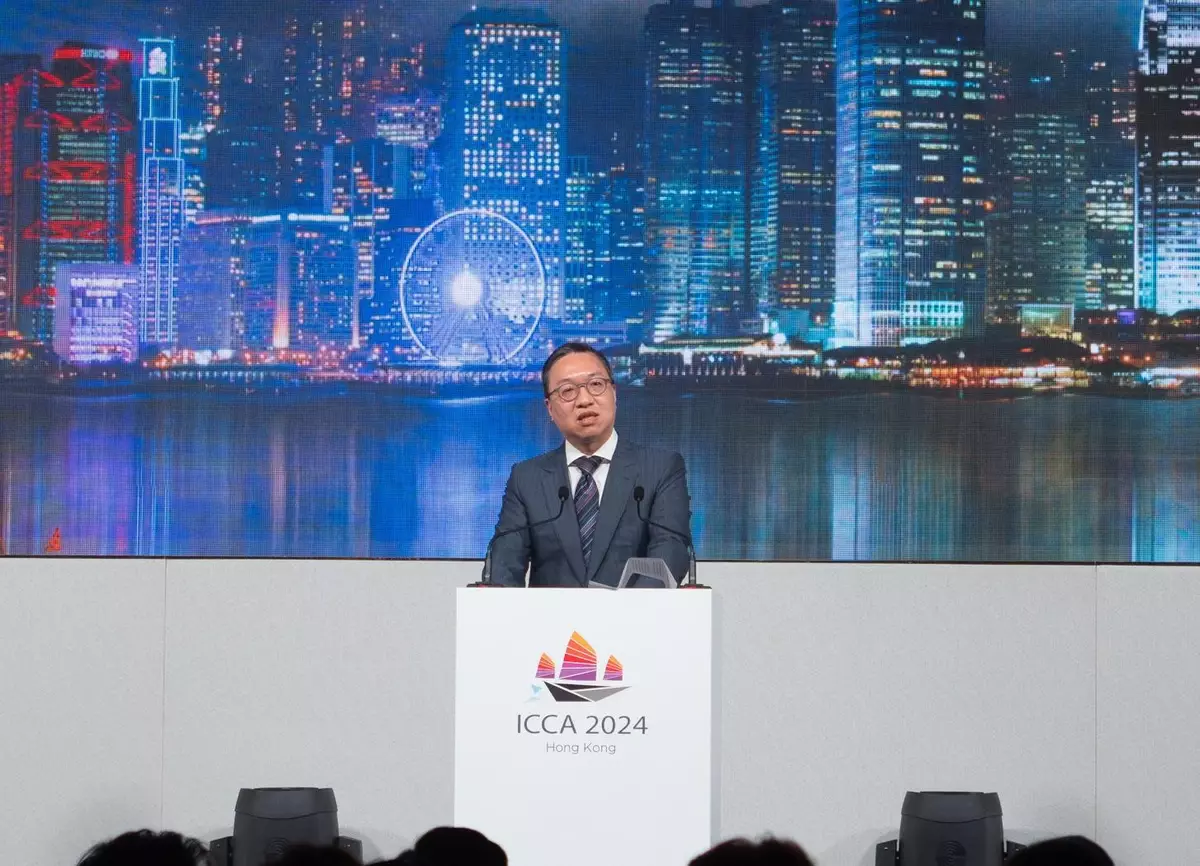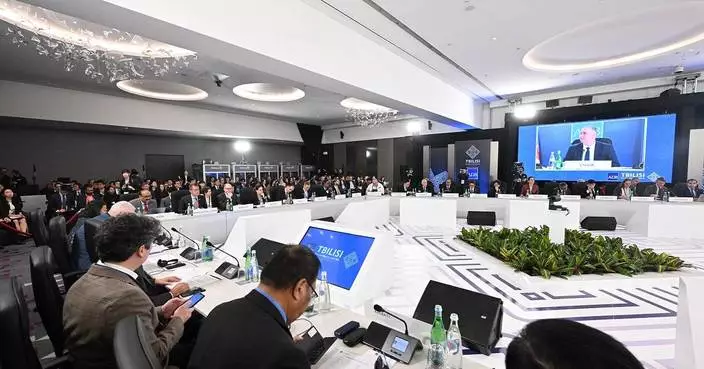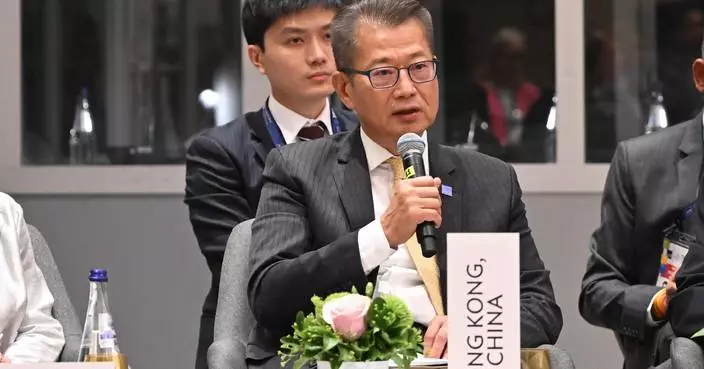Unlocking the potential: the key to solving workforce supply challenges
Following is a question by the Hon Tang Fei and a written reply by the Secretary for Labour and Welfare, Mr Chris Sun, in the Legislative Council today (April 24):
Question:
According to the latest data published by the Census and Statistics Department, the provisional estimate of the Hong Kong population was approximately 7.5 million at end-2023. While the population registered an increase for two consecutive years since normalcy resumed in Hong Kong, the population of Usual Residents has dropped by nearly 140 000 over the past three years, and there is also a drop in the labour force in the 20-39 age group. Regarding the supply of workforce, will the Government inform this Council:
(1) of the specific measures in place to attract and retain young or middle-aged workforce in Hong Kong, especially professional talents in the technology and financial industries as well as other high value-added industries, so as to ensure the long-term prosperity of Hong Kong;
(2) of the long-term plan in place to promote population growth, and the measures in place to prevent the labour market from shrinking as a result of changes in the demographic structure;
(3) as there are views that despite various talent-trawling measures adopted by the Government in recent years, the population of Usual Residents in Hong Kong still decreases, how the Government assesses the effectiveness of those measures, and of the new strategies to be put in place in the future to attract high-quality talents from outside Hong Kong to fill the vacancies in the local labour market; and
(4) how it will upgrade the skills of local young people, so as to help them adapt to the requirements of future economic development?
Reply:
President,
Hong Kong is facing challenges posed by ageing population and manpower shortages. Various policy bureaux have been closely monitoring changes in the local demography and manpower situation in different industries, and will review and enhance relevant strategies and initiatives under their purview in a timely manner to meet Hong Kong's economic and social development needs.
On the Member's question, after consolidation of the responses by the Deputy Chief Secretary for Administration's Private Office, the Education Bureau, the Innovation, Technology and Industry Bureau, the Financial Services and the Treasury Bureau, the Transport and Logistics Bureau, and the Labour and Welfare Bureau (LWB), I reply on behalf of the Government as follows:
(1) and (4) Workforce is the prime resource to drive sustainable economic development of Hong Kong. In light of the sustained economic growth after the pandemic, the labour market is anticipated to remain tight for some time in future. The main thrust of the Government's manpower policy is to nurture local talents and unleash local workforce. We launched a series of training initiatives covering different industries and professions and local young people are the main targets for some of them. In addition, the Government devotes great efforts to boost the economy and develop emerging industries so as to provide quality job opportunities with prospects to the local labour force, particularly young people and to attract them to stay in the local labour market to realise their full potentials and contribute to Hong Kong.
The Government makes significant investment in education to provide students with diversified and quality education and promote whole-person development, thereby allowing students to choose their own articulation pathways and join different industries according to their interests and abilities. The Government has been encouraging the University Grants Committee (UGC)-funded universities to offer programmes which cater for Hong Kong's development needs and expand the talent pool in important areas such as innovation and technology. The UGC's strategic directions of the upcoming triennial planning exercise cover the support to strengthen growth impetus for Hong Kong and prepare talents for development, transformation and future challenges.
Meanwhile, Vocational and Professional Education and Training (VPET) has long been an integral part of the education system in Hong Kong. The Government adopts the strategy of fostering industryâinstitution collaboration and diversified development, with further promotion of VPET under a multi-pronged approach to nurture more high-quality talents equipped with applied skills as well as provide young persons with diversified learning and employment opportunities. These will enable them to acquire the skills and knowledge as need in the society and the workplace. To further elevate the status of VPET at degree level, the 2023 Policy Address announced that the Government would press ahead with the establishment of universities of applied sciences (UAS), providing a pathway to success for young people who aspire to pursue a career in professional skilled sectors. The Government announced on March 21, 2024, that the Hong Kong Metropolitan University was qualified as the first UAS in Hong Kong.
The Government has also supported the Vocational Training Council (VTC) to provide a comprehensive system of education and training services so as to further strengthen VPET. The VTC offers more than a thousand in-service training short courses annually for upgrading skills and knowledge with over hundred thousand of student enrolments. The Apprenticeship Scheme each year provides on-the-job training and vocational education in different technical trades to more than a thousand registered apprentices. With the objective to attract more young people to participate in the scheme and work in relevant trades, each registered apprentice will, for a period of three years starting from 2024/25, receive an additional monthly training allowance of $1,000, and, after commencing employment upon graduation, continue to be subsidised to undertake training courses in relevant trades. Furthermore, the Employees Retraining Board (ERB) provides eligible trainees with market-driven and employment-oriented courses to assist them in joining or re-joining the labour market. The ERB currently offers more than 700 training courses straddling 28 industry areas and on different generic skills, with more than hundred thousand of training places annually.
The Labour Department (LD) has also implemented various employment programmes to assist job seekers in employment, including the Employment Programme for the Elderly and Middle-aged to encourage employers to engage job seekers aged 40 or above and provide them with on-the-job training; and the Re-employment Allowance Pilot Scheme to increase the incentives for persons aged 40 or above who have not been at paid employment for three consecutive months or more to re-join the labour market to unleash potential workforce. In addition, the LD has implemented the Youth Employment and Training Programme and run the youth employment resource centres to assist young people in better understanding themselves and their work aptitudes while enriching their job skills and experience so as to enhance employability.
Specifically for the pillar and priority industries of Hong Kong, relevant policy bureaux have implemented different measures to attract, train and retain talents. For example, in the sectors of banking, asset and wealth management, insurance, finance, etc, the Government has in recent years launched programmes such as the Pilot Programme to Enhance Talent Training for the Insurance Sector and the Asset and Wealth Management Sector to provide training and subsidies to tertiary students, graduates and practitioners. The Government has also sponsored exchange activities of relevant professionals.
In the innovation and technology sector, the Government, through the STEM Internship Scheme, encourages university students taking STEM (Science, Technology, Engineering and Mathematics)-related programmes to gain experience in I&T-related work during their studies. In addition, the Government sponsors the Innovation and Technology Scholarship to subsidise university students to participate in I&T-related exchange activities. The Government also funds eligible companies or organisations through the Research Talent Hub (RTH) to engage university graduates in STEM-related disciplines to conduct research and development work. In 2023, the Government increased the allowance for engaging research talents under RTH and provided additional living allowance to research talents with doctoral degrees.
Regarding the aviation sector, the Government has all along been collaborating with the Airport Authority Hong Kong (AA) and the aviation sector to introduce various measures to attract new blood. The Hong Kong International Aviation Academy (Academy), set up by the AA, is committed to training local and regional air transport talents. For instance, the Academy launched a cadet pilot programme in September 2023 and introduced in collaboration with a university Hong Kong's first Bachelor of Administration (Honours) degree programme with pilot training, thereby nurturing more quality local pilots for Hong Kong's aviation industry.
Different policy bureaux will continue to closely liaise with their industries, and formulate corresponding measures in response to the latest industry development and manpower situation so as to attract and train sufficient talents to maintain the competitiveness of relevant industries.
(2) and (3) The most fundamental way to drive population growth is to raise fertility rate. Therefore, the Chief Executive announced in the 2023 Policy Address an array of measures to promote fertility. These measures, including giving families newborns priority on flat selection and allocation, enhancing child care support, increasing tax concessions and providing Newborn Baby Bonus, etc. These are to encourage fertility by creating a conducive environment for childbearing to provide the manpower required for the long-term economic development of Hong Kong and to alleviate the problem of an ageing population.
In addition, it is most direct and efficient to replenish the local population and workforce by admission of quality outside talents. Since the Governments implementation of a series of talent attraction measures at end-2022 up to end-March 2024, more than 110 000 talents under various talent admission schemes have arrived in Hong Kong with their dependants.
From end-2022 to end-2023, there was a net inflow of 51 700 Hong Kong residents, with signs of reversing the population decline since 2020. According to the statistics released by the Census and Statistics Department, the Hong Kong population was 7.5 million at end-2023, representing an increase of 0.4 per cent from that at end-2022, which registered an increase in the population for the second consecutive year since Hong Kong's resumption of normalcy. Most of the immigrants are at working age. The local labour force (excluding foreign domestic helpers) also rebounded from the lowest of 3.43 million in 2022 to 3.48 million in the fourth quarter of 2023.
In addition to the positive responses of various talent admission schemes, incoming talents can enhance the local talent pool to cope with the manpower shortage in Hong Kong. For instance, the employment-tied schemes such as the General Employment Policy (GEP) and the Admission Scheme for Mainland Talents and Professionals (ASMTP) aim to enable enterprises to engage outside talents to fill job vacancies. In 2023, around 26 000 and 20 000 applications under the GEP and the ASMTP were approved respectively. Amongst which, about 500 approved cases involved talents falling under the industry segments and professions on the Talent List whom enterprises could directly employed without the need to prove difficulties in local recruitment. Furthermore, many talents admitted to Hong Kong under the Top Talent Pass Scheme (TTPS), which targets high-income talents and graduates from the world's top universities to come to Hong Kong for development, have been in employment. In November 2023, the LWB conducted follow-up surveys with the TTPS entrants having arrived in Hong Kong for more than six months. Results showed that more than half of the talents under the TTPS had entered the local labour market and that more than 10 per cent of the accompanying spouses were in employment. The Hong Kong Talent Engage, established last year, will also formulate targeted recruitment and publicity strategies for different talent groups and provide support services to talents who arrived in Hong Kong in order to assist them in adapting to the new environment as early as possible and integrating into the community.
In anticipation that the local workforce will remain tight in the future, the Government will continue to trawl for outside talents to fill vacancies in the local market. The LWB will review the TTPS and other enhanced talent admission arrangements in the middle of this year to ensure the competitiveness of relevant measures and their effectiveness in addressing Hong Kong's manpower demand.
In addition, the LWB is conducting the manpower projection to assess the manpower needs and shortage in 2028 in key industries driving economic growth in Hong Kong and main services supporting city operation. Key findings will be available in the third quarter of this year, followed by a detailed report to be released in early 2025. The projection findings will guide the Government in adjusting the policies relevant to manpower and training to meet the needs of economic and industries developments in Hong Kong.

Source: AI-generated images








